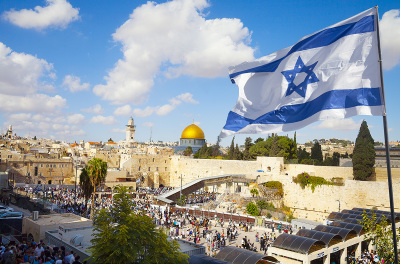From Middle East: What is the Christian response to intolerance?

Ever feel like everyone's tossing around the word intolerance, but nobody's really unpacking it? What is behind it? Where does it come from? And what do we need to understand to overcome it?
I’d like to offer a perspective as a Middle Eastern Christian who was born and raised in the Holy Land, where Jesus walked the earth.
Intolerance is not as simple as just having strong beliefs. It's about what happens when those beliefs get so rigid, so unquestionable that they're used to justify treating others badly. And this is where things get really dangerous. It's the belief that their view is the only valid one, like no ifs, ands, or buts. Interfaith dialogue? Forget about it, even acknowledging that other paths to truth might exist is a no-go zone. And that's where the potential for real harm comes in. If you are absolutely convinced that you have the only truth, well, anyone who disagrees isn't just wrong, they're an enemy.
And that is a slippery slope. You start justifying intolerance, discrimination, and in some extreme cases, even violence. It's chilling how easily it can escalate. This isn't just some kind of theological problem. It is a spiritual one that manifests as intolerance.
It’s what makes Jesus's message of love and forgiveness all the more radical.
This is a man living in a time of intense oppression, hatred is everywhere, and He's preaching compassion for your enemies. Even on the cross, Jesus prayed as recorded in Luke23:34, "Father, forgive them, for they do not know what they are doing."
This is mind-blowing when you really think about it. He was calling for a complete overhaul of the system. Forgiveness as resistance!
Easier said than done, right? Especially when we're talking about historical injustices, deep-seated pain, and generations of trauma. This is not to say we ignore suffering or pretend it didn't happen. Far from it.
True reconciliation, the kind that leads to lasting peace, can only grow from that soil of understanding. And ultimately, it requires forgiveness.
How do we break free from those cycles of pain and resentment?
We ditch the legal model, what I sometimes refer to as the whole way imbalance, the tit-for-tat approach. We move toward grace, that unmerited, undeserved favor.
It's like a chain reaction, a ripple effect. You forgive, and maybe, just maybe, that opens the door for someone else to do the same. It's a cycle of love and understanding.
Forgiveness isn't just a religious ideal; it's a tool for tangible change, for ourselves first, then for our communities, and the whole world.
But in a world saturated with hate and violence, just telling people to forgive each other isn't enough. It must go deeper than that. So how do we actually do that? How do we put that into practice? What are some tangible things we can do as individuals, and as communities, to start bridging those divides and building a more peaceful and just world?
First, we must educate ourselves and take the time to learn about different faiths and cultures, engage in respectful dialogue, and, crucially, challenge our own prejudices.
Secondly, we must build relationships, reach out to people from different backgrounds, have meaningful conversations, and find common ground.
Finally, we have to humanize the other. Choosing to see the humanity in those who have wronged us, and then work together to create a future where those wrongs aren't repeated. It's not easy, but it’s the only way to break those cycles of violence and hatred that have plagued humanity for millennia. It ultimately all comes back to the radical act of forgiveness.
I sometimes call this “listening love” and it’s a phrase that has stuck with me.
And it’s summed up as this: before we can even begin to bridge divides, one of the most important things we can do is actually listen to the other side. It's not just about hearing the words, but about trying to understand their perspective, history, and pain, even if you don't agree with them. It's like you were saying, everyone has a story. And those stories deserve to be heard, not dismissed, just heard.
It's about going beyond our own little bubbles, our preconceived notions, our biases, being open to the possibility that maybe we don't have it all figured out, maybe there's something new to learn.
Tony Mubarak, a native Jerusalemite Christian seasoned tour guide, brings over two decades of expertise in leading Christian Churches and mission groups through the Holyland. With extensive knowledge in history, geography, and Middle Eastern Culture, Tony offers invaluable insights into the remarkable journey of Christians who faithfully follow Christ's teachings. Captivating pilgrims with his charismatic demeanor, impeccable style, and commanding presence, Tony showcases unwavering commitment to his work and family, making him an exemplary figure in his field known for his depth of knweldge, magnetic personality, and passion for his craft.





















